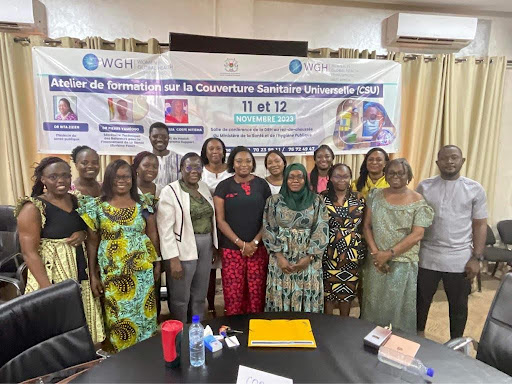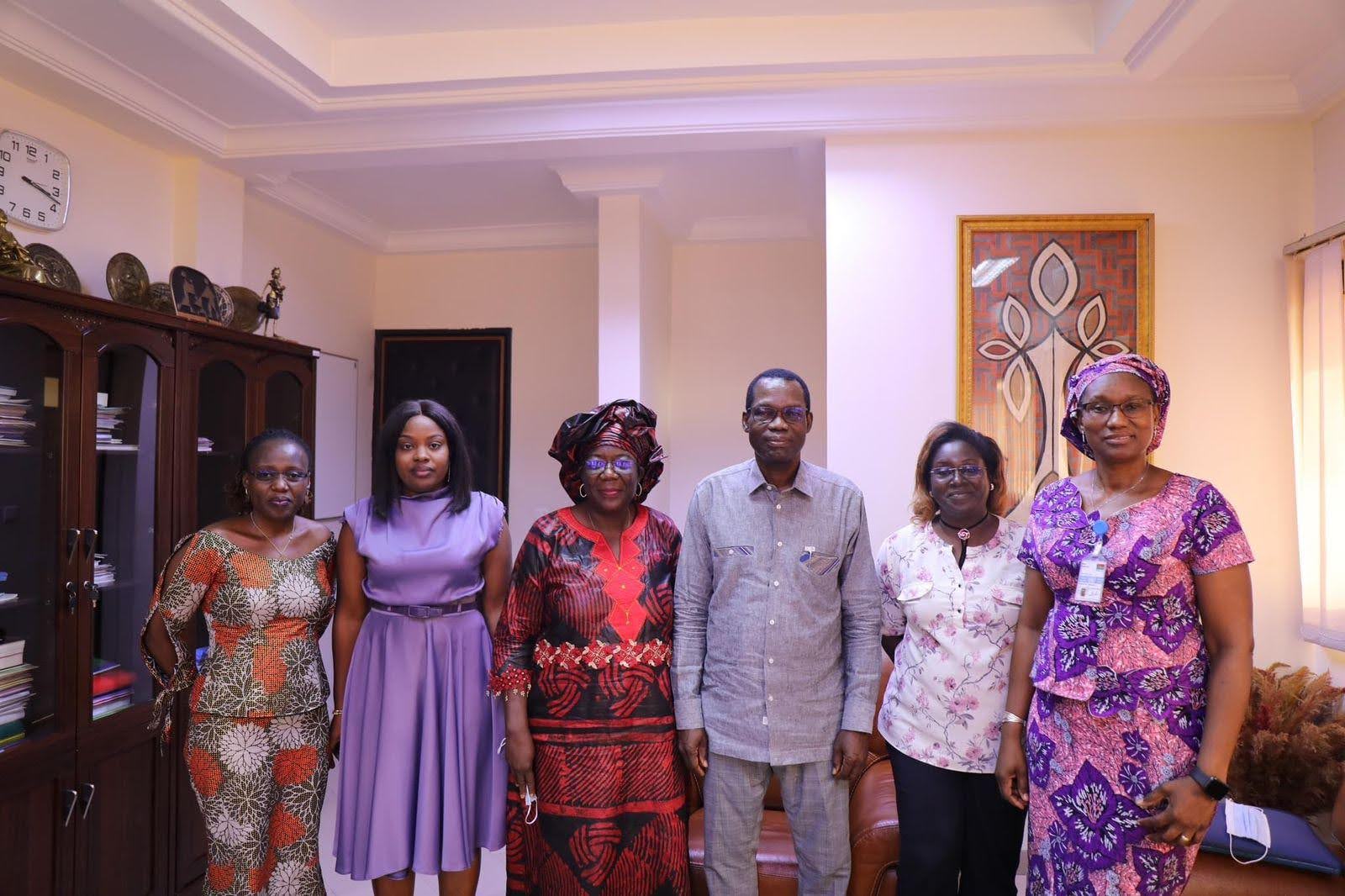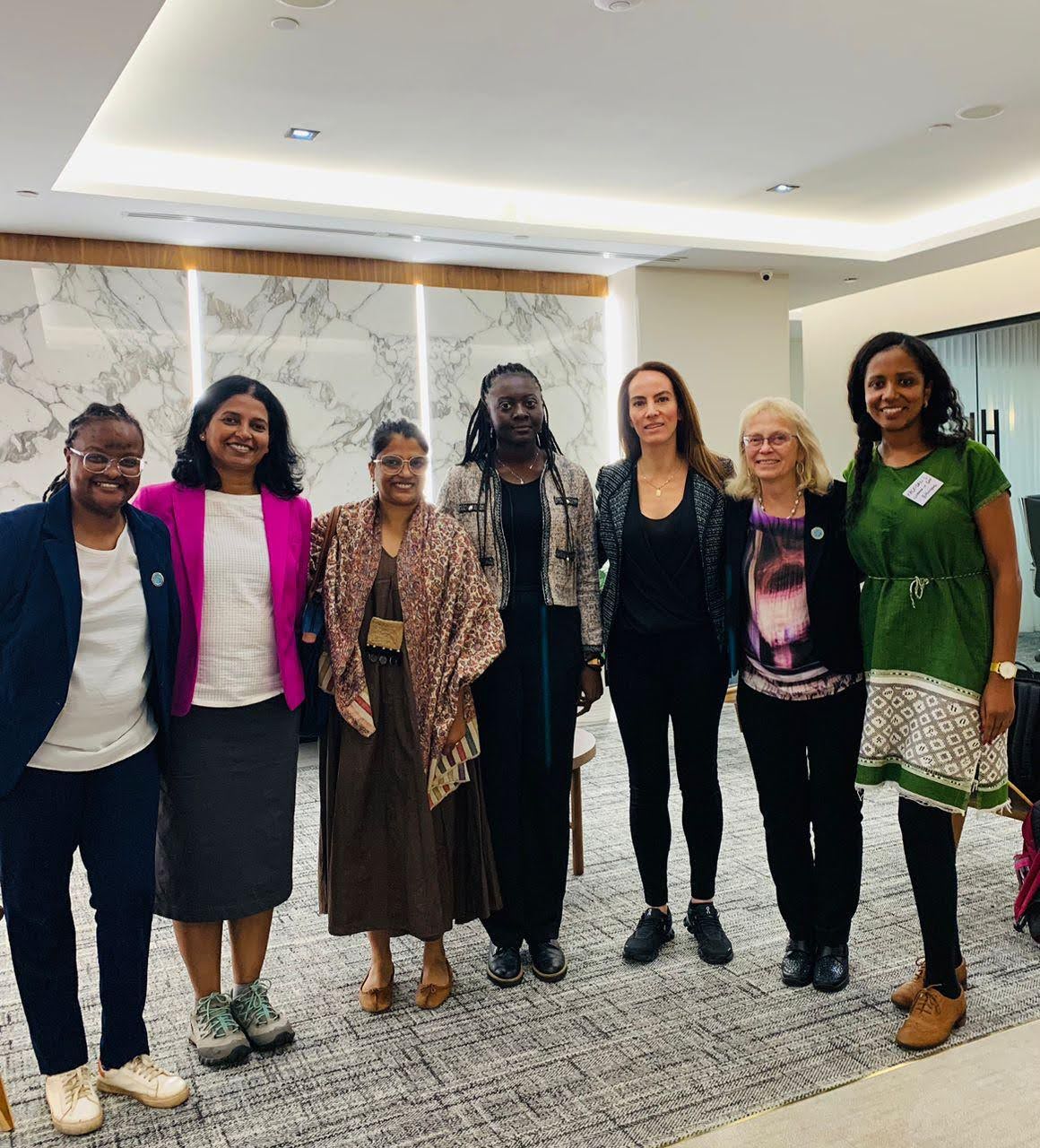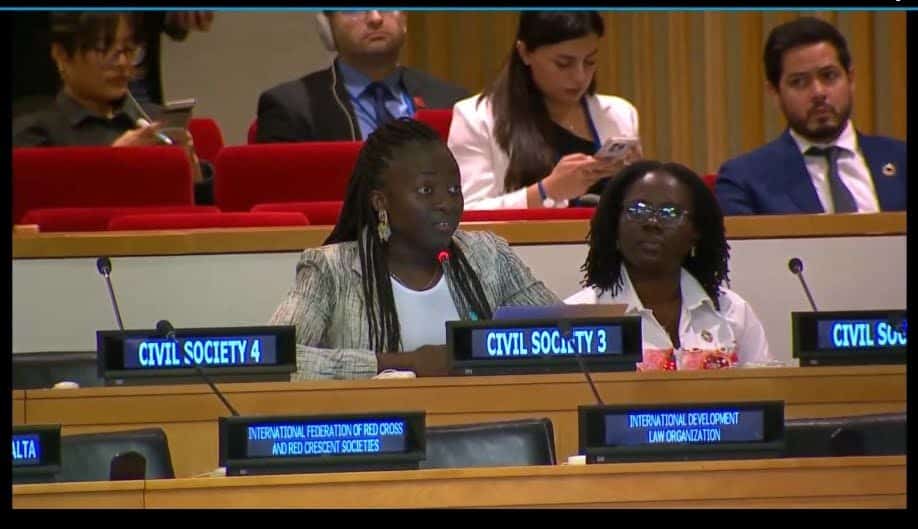Women in Global Health helps to advance Gender-Responsive Universal Health Coverage in Burkina Faso
12 December 2024
The Landscape for UHC in Burkina Faso
Ensuring Universal Health Coverage (UHC) is a key priority in Burkina Faso. A landlocked country located in West Africa, it faces a myriad of challenges linked to sustainable development, political stability, harsh climatic conditions hamper efforts to reduce vulnerability and poverty, aggravate security problems and further create health inequalities.
With a population of 22.8 million by 2023, of which 70% live in rural areas and 45% are aged between 0 and 14 years, the country faces both demographic pressures and limited resources. The country Gender Inequality Index (GII) is 0.605, reflecting deep disparities between men and women, particularly in terms of reproductive health, economic empowerment, and political participation.
Despite substantial improvements over the last few years, health indicators still largely lag behind regional averages. Life expectancy is at 62 years[1]. Maternal and under-five mortality are estimated at 198/100,000 and 30/1000 live births, respectively[2]. Malaria, acute respiratory infections and diarrhea still account for the largest proportion of child mortality [3].
Health service delivery is organized in a three-tier system (district, regional and national). This structure includes primary health facilities (Centre de Santé et de Promotion Sociale), district hospitals located in each health district, regional and national referral hospitals. However, the system faces shortages of funding and human resources, affecting the quality of care. For instance, there is only 1 medical doctor for every 9872 people, and while the ratio of nurses (1 nurse per 2566 people) meets the WHO recommendations (1 nurse per 3000 people), there is a lack of specialized medical and paramedical staff. According to the National Public Health Observatory, nearly half (49.71%) of healthcare professionals work in rural areas,15.24% are in semi-urban areas, and 35.05% are in urban areas. Among health personnel, 52% are women although women remain underrepresented in decision-making positions.
The government’s allocation to the health sector has fluctuated between 14.2% (2019) to 12%(2023)[4]. In 2022, per capita government spending on healthcare represented 7.27% of the country’s GDP, while out-of-pocket spending by Burkinabés accounted for 32.42% of total healthcare expenditure [5]. Even with this reduction and the global economic crisis, the government’s investment in health remains among the highest in the region.
Despite the many socio-political and security challenges, substantial improvements have been noted in recent years, notably in terms of access to healthcare services. In 2020, 44.4% of the country was covered by essential health services, much more than other countries in the west african region ( 41.4% in Benin and 40.0% in Côte d’Ivoire) [6]. However, some health indicators remain well below regional averages.
Achieving Gender-Responsive Universal Health Coverage in Burkina Faso
In response to the observation of catastrophic healthcare expenditures faced by the Burkinabè households and with the aim of achieving UHC, several reforms have been introduced since 2015. These efforts started with the enactment of the law on the universal health insurance plan, followed by innovative social protection policies.
In September 2015, the plan was designed to ensure that all citizens have access to essential health services without facing financial hardship. The law resulted from extensive policy dialogue supported by the World Health Organization (WHO) and other key partners. Over the years, the country has implemented several health financing reforms to foster progress towards UHC, focusing on maternal and child care. For instance, in June 2016, the Ministry of Health (MoH) launched the free-of-charge healthcare programme targeting pregnant and lactating women and children under five. This initiative was expanded in April 2023 by ensuring fee exemptions for the treatment of female cancers, cancers of children under 15 years old, prostate cancers, and poor persons who suffer from cancer.
A critical component of these initiatives is the active involvement of civil society including Women in Global Health Burkina Faso (WGH-BF), and the local communities in the implementation and monitoring of UHC policies.
WGH-BF has been legally established since July 2021, and formalized a partnership with the Ministry of Health in September 2022. Since its creation, WGH-BF has received support from the global WGH network, in securing grants to promote women’s leadership and gender equity in global health in Burkina Faso. These grants allowed the chapter to implement various activities since January 2023, closely with the MoH, to achieve gender-transformative UHC in Burkina Faso.
Women in Global Health Burkina Faso’s efforts on UHC
WGH-BF started its UHC-related activities at the end of January with the “Strengthening UHC” project, planned to be implemented from January 2023 to December 2024. This began with officially informing the Ministry of Health and requesting its commitment to contribute to achieving the project goals. [Link to the official letter]
The MoH responded favorably and officially designated the Technical Secretariat for Health Financing Reforms ((ST-RFS), previously the Technical Secretariat in charge of the gratuité, the free care program)) to work with the Burkina Faso Chapter.
As part of the “Strengthening UHC” project, several activities have been planned, including capacity building to advocate for UHC for WGH-BF members and other members of sister chapters in French-speaking Africa, conducting research on the on UHC and gender in Burkina Faso, a consultation workshop with various stakeholders, a development of advocacy notes to lead to efficient national advocacy for a gender transformative UHC in Burkina Faso, and WGH-BF participation in major global health and UHC events.
Capacity building to advocate for UHC
To gain a better understanding of UHC in order to equip its members in advocating towards achieving global and national UHC goals, WGH-BF organized a two-day UHC-focused training workshop on November 11 and 12, 2023. This training was facilitated by the ST-RFS. The training was held in-person and online and opened to members of WGH-Burkina Faso and other West African French-speaking sister chapters. Over 35 women learned about what constitutes the UHC at national, regional and international levels, its key components, the role of gender, and the associated challenges and opportunities. The training also included practical sessions on developing key messages on UHC, providing the participants with the tools to effectively communicate the importance of UHC. This was found to be essential for raising awareness, building public support, and driving positive changes towards UHC. The training also fostered regional collaboration and networking among members of different Francophone West African chapters, strengthening the collective voice in advocating for UHC. This collaboration facilitates sharing of best practices and experiences across diverse contexts, which is crucial to overcoming common challenges and advancing UHC in a coordinated effort across the region.

WGH-BF participants to the UHC training and the facilitators (Dr Pierre Yameogo, ST-RFS; Dr Rita Zizien, Health Specialist and Dr Basilia Coefe Nitiema, Health Specialist), Ouagadougou, November 2023
Conducting a study on UHC and gender in Burkina Faso
WGH-BF researchers are currently conducting a study with an external consultant’s support to explore how gender is taken into account in current UHC policies in Burkina Faso, following a health system approach to understand the current situation and formulate evidence-based recommendations as part of the country’s efforts towards UHC. The study has been approved by the Burkinabe Ethical Committee for Health Research and results will be disseminated through a scientific paper and policy briefs.
In 2023, WGH-BF established local partnerships with UNICEF and UNFPA, allowing them to hold technical consultations on gender-responsive UHC. An audience with the WHO office in Burkina Faso, provided a platform to share experiences and discuss potential partnerships.

Partnership visit at UNICEF by WGH-BF members, Ouagadougou, April 2023
Engaging in global health events to support Women in Global Health advocacy efforts for gender transformative health systems and UHC
WGH-BF actively participated in global forums such as the World Health Assembly (WHA) and the United Nations General Assembly (UNGA). In may 2023, Dr Marie Madeleine Rouamba, the Burkina Faso Chapter coordinator, participated in the 76th WHA where she supported WGH advocacy efforts and facilitated a meeting between WGH global executive team and the Burkina Faso MoH. This was a key advocacy opportunity with the top public health official in Burkina Faso. The chapter also participated in the high-level meeting on UHC and human rights in 2023, held during the 78th UNGA in New York. During that event, Bibata Wassonguema, a member of the WGH-BF executive team, delivered a statement on behalf of the Alliance for Gender Equality and UHC, to call for gender-responsive policies and UHC.

WGH chapter representatives including Bibata Wassonguema at UNGA, New York, September 2023
WGH-BF was represented at UNGA 2024, placing a high priority on issues relating to UHC and the commitments made by the various national governments.

Bibata Wassonguema delivering the statement at UNGA78, UN headquarters, New York, September 2023
At the UN Civil Society Conference in Nairobi in May 2024, WGH-BF was represented by Habibou Ouedraogo, the focal point of the chapter UHC-related activities, to champion the cause of equity and rights in global health, highlighting the urgent need to ensure a future where health is gender-sensitive and universally accessible.

Habibou Ouedraogo at the UN Civil Society conference in may 2024 together with WGH members from Kenya and Senegal, Nairobi, May 2024.
WGH also took part in the 77th WHA in Geneva in May 2024, where several sessions (in which its members took part) focused on achieving UHC by 2030.

WGH-BF chapter representatives at WHA, Geneva, May 2024
Challenges and opportunities
Achieving UHC in Burkina Faso means addressing challenges through opportunities, given the country’s socio-cultural, economic, security and health context. In terms of challenges, inequalities in access to healthcare, and more specifically access to sexual and reproductive health services for women, the under-representation of women in healthcare decision-making and economic disparities between genders continue to have a negative impact on the achievement of UHC. By addressing these gender-related challenges in a context of insecurity, Burkina Faso can create a more inclusive and equitable healthcare system, improving health outcomes for men and women across the country.
Opportunities revolve around the Burkinabe government’s strong commitment to implementing health policies in Burkina Faso that are increasingly gender-focused, and the promotion of women’s leadership through their growing participation in the decision-making process. This last component encourages greater consideration of women’s needs in the development and implementation of health policies.
WGH-BF is focusing its efforts on initiating effective advocacy for the integration of a gender perspective into the implementation of the UHC. WGH-BF is working to address the aforementioned challenges of access to quality health services for all to ensure UHC for the entire population. An integrated approach that addresses gender disparities strengthens health systems, making them more inclusive and accessible. Ultimately, the real achievement of the country remains the attainment of sustainable UHC by being better prepared to respond to health emergencies.
References
[1] RGPH 2019, INSD
[2] Annuaire statistique 2023, Ministère de la santé
[3] Annuaire statistique 2023, Ministère de la santé
[4] Annuaire statistique 2023, Ministère de la santé
[5] Comptes nationaux de la santé 2022, Ministère de la santé
[6] Indicateurs pour la région Afrique, OMS 2020